Movement in the City, Melrose Park, Suffers Fire
A fire briefly burned in Movement in the City’s (new faith community) Melrose Park campus this morning. Firefighters, who rushed from a nearby station, quickly extinguished the…
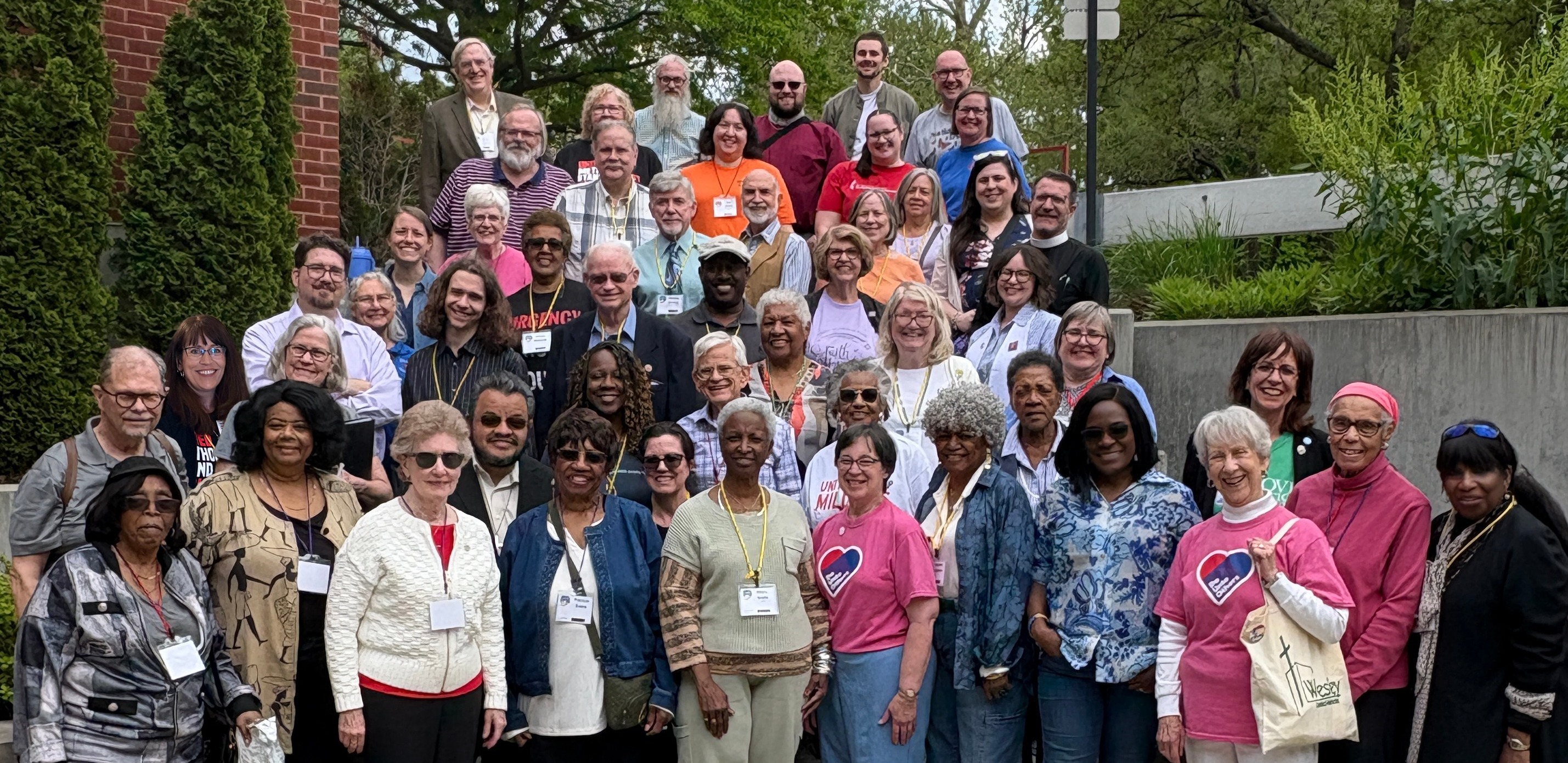
The group paused for a photo after lunch before heading back to the capitol.
On a mission rooted in faith and justice, a coalition of over 65 United Methodists and partners gathered in Springfield for the second annual Advocacy Day on May 7, 2025. The day, planned by the Advocacy Partners of the Northern Illinois Conference Commission on Religion and Race and the Illinois Great Rivers Conference Church and Society Committee, drew people from the NIC, Illinois Great Rivers Conference, United Voices for Children, and Children’s Advocates for Change.
Inspired by the sacrifices and vision of past activists, participants representing over 1,000 churches and nearly 50,000 members from across Illinois came to engage directly with Illinois legislators. Through Advocacy Day, United Methodists took direct action to promote the values of justice, compassion, and inclusion in state policies.
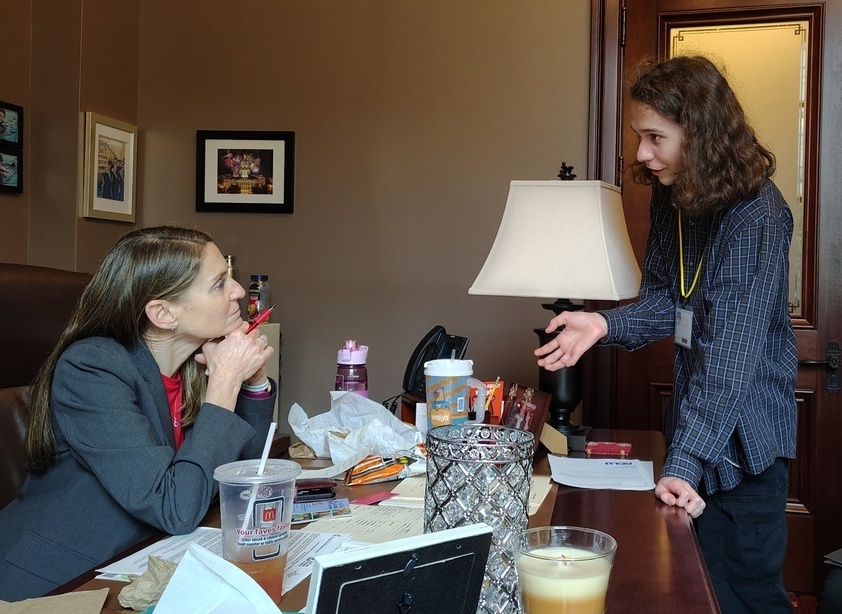
Timothy Biel III, one of the young adults on the trip, engages with a legislator.
“Springfield Advocacy Day is an excellent example of United Methodists coming together to raise our collective voices to let our legislators know what we stand for,” said Lisa Rogers, chair of the NIC Advocacy Partners. “Using our Social Principles as a guide, we shared our United Methodist values with our elected officials and asked them to consider those values when they vote for or against bills.”
Multiple points of engagement were built into the day, including pre-arranged meetings with participants’ state legislators, sitting in on legislative discussions, and touring the capitol. Participants organized themselves into small groups and met with their legislators. They brought with them position papers, talking points, and a reminder of the strength of United Methodists.
“Illinois Great Rivers Conference was thrilled to join our brothers and sisters of the Northern Illinois Conference in Springfield,” said Deaconess Christina Krost, chair of the IGRC Church and Society Committee. “I'm looking forward to making this a yearly event that helps build relationships with our legislators and uplifts our witness across Illinois: from Chicago to Carbondale.”
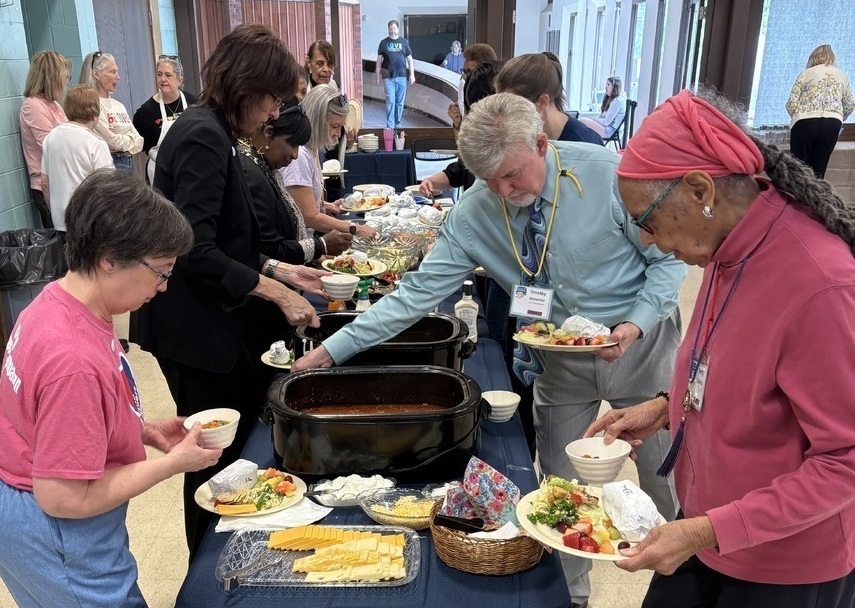
Participants enjoyed a delicious lunch to fill their spirits and stomachs before heading back to the capitol.
Douglas Avenue UMC, just a few blocks from the capitol, hosted a lunch for the group. This also served as a time of learning and debriefing from the meetings earlier in the day. Rev Curtis Brown, IGRC Director of Connectional Ministries, shared words of encouragement for the participants, reminding them that we are one Illinois with many members who stand on a long history of United Methodist activism. “There is much to do, we have been here before, and we have won before,” he encouraged.
The day closed with a public prayer and drum circle at the Lincoln statue, a moment of spiritual reflection and unity before departing for home.
The work of NIL’s Religion and Race Advocacy Partners did not start on May 7. This hands-on advocacy experience is a continuation of the group’s broader work, which includes anti-racism education and community action inspired by the 2023 NIC civil rights pilgrimage to Selma and Montgomery. Multiple learning sessions included information on how to talk to legislators, relationship building, listening, advocacy skills, and strategies for speaking with elected officials.
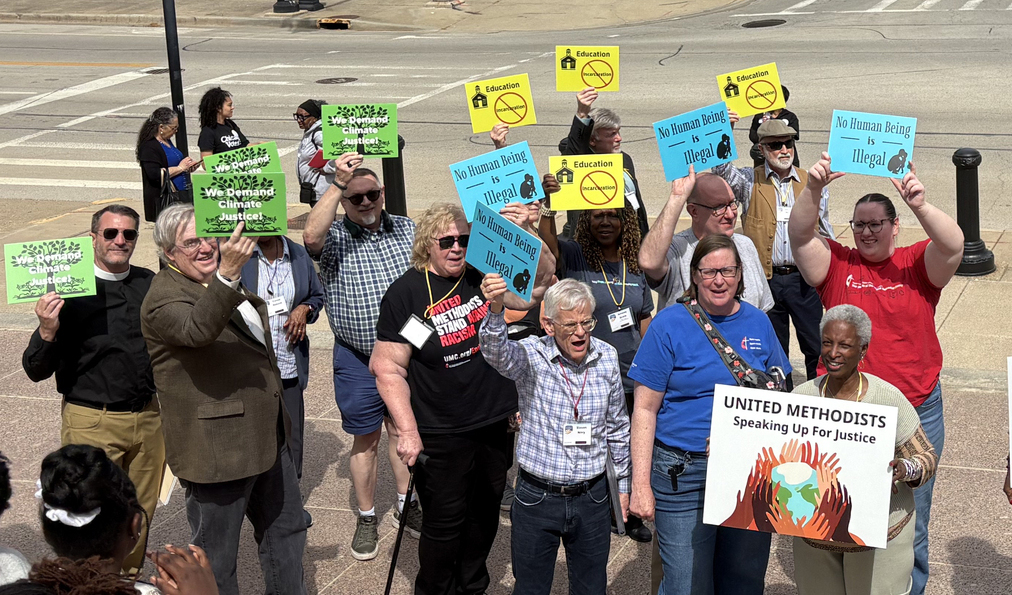
The public prayer and drum circle included signs to notify those passing by of some UM priorities.
The group’s 2025 advocacy agenda centered on three key priorities: environmental justice, immigrant and migrant services, and youth education and mental health. These three key priorities are supported by our United Methodist Social Principles and are important in creating a nation is truly equitable for all.
Environmental justice is not separate from social justice, particularly in urban areas where pollution and lack of green spaces disproportionately affect communities of color. The UMC affirms the inherent dignity of all people and stresses that comprehensive immigrant support reflects our moral responsibility. Education has long been a cornerstone of Methodist tradition, and we acknowledge the connection between educational opportunities in safe and nurturing environments, and mental health and a student’s ability to perform.
As this faithful and focused group walked the halls of the capitol, they carried with them not just talking points, but a vision for an Illinois where justice, compassion, and equity are more than ideals—they are lived realities. Their presence was a reminder that advocacy is an act of faith, and that hope takes root when people show up, speak out, and stand together.
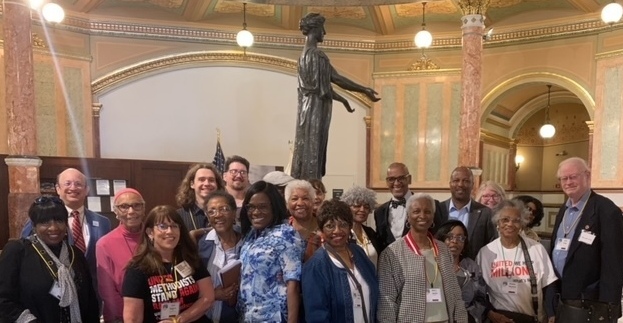
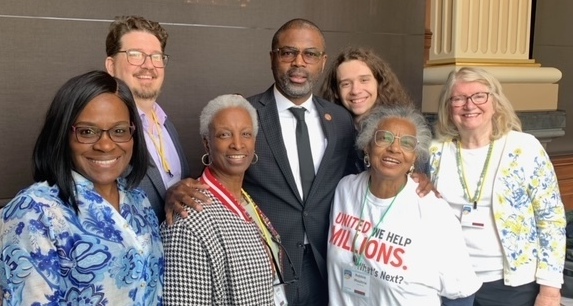
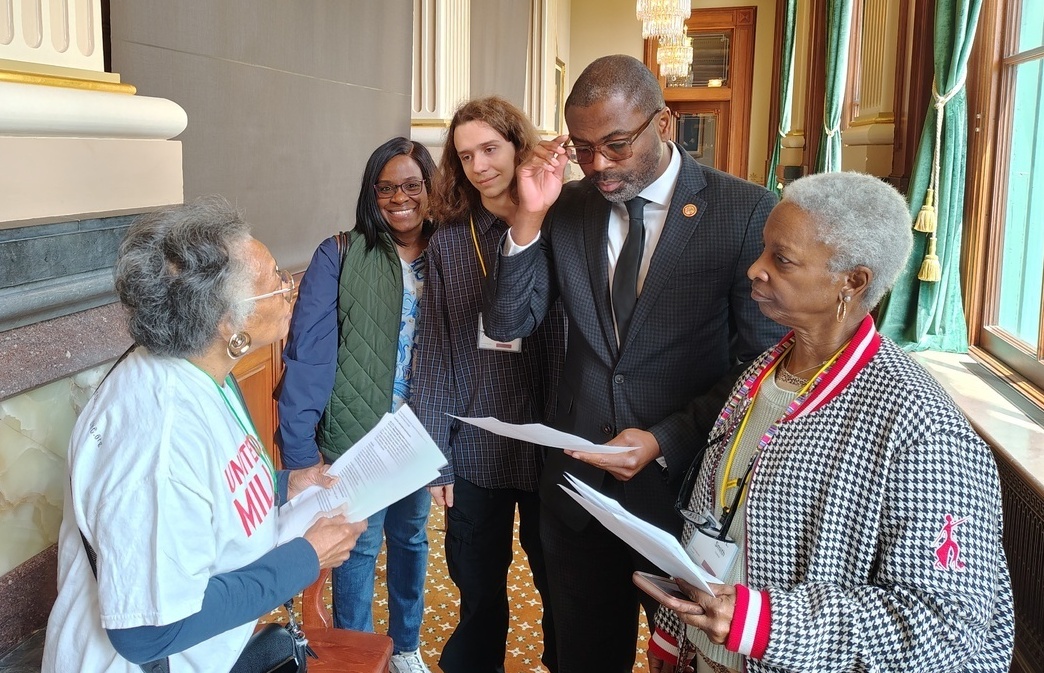

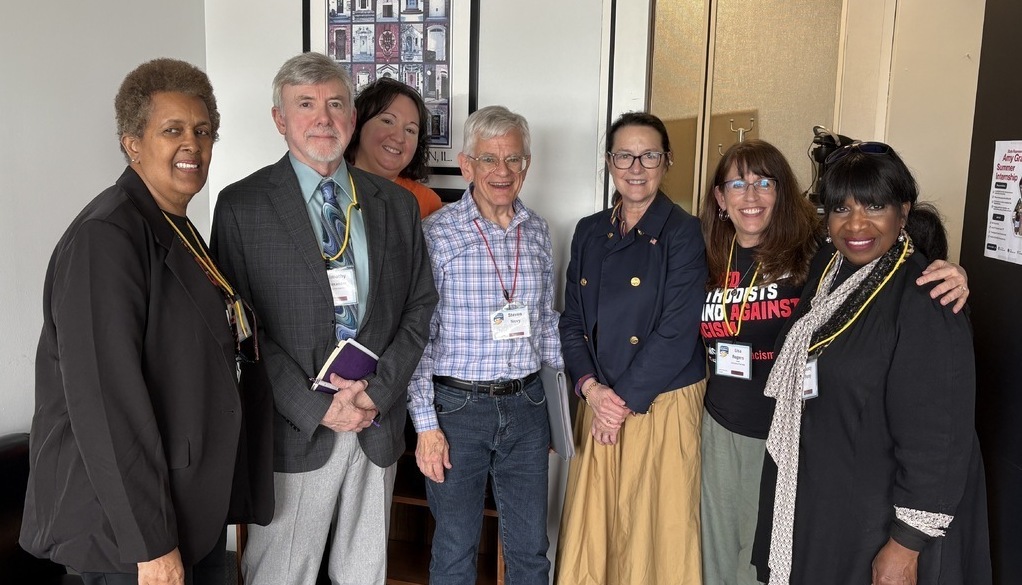
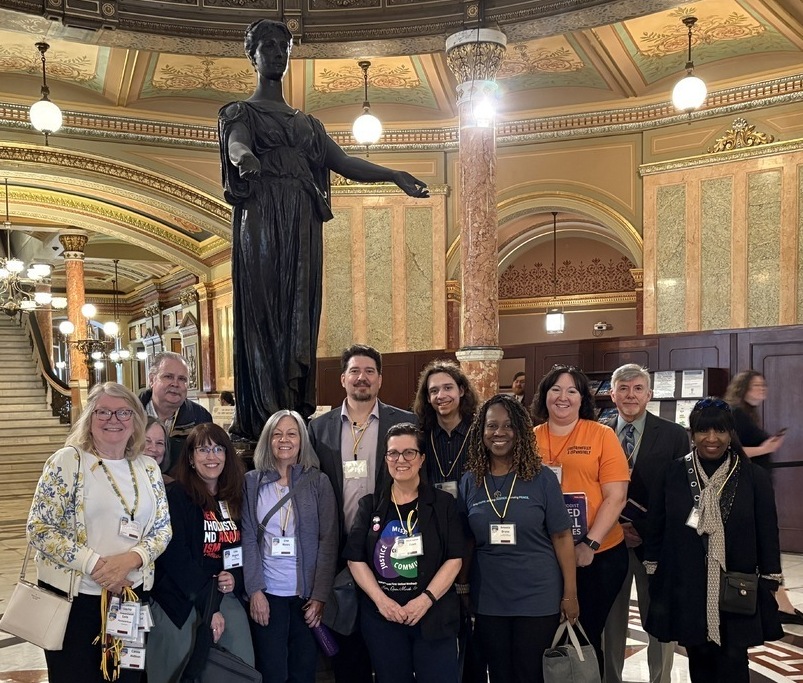
A fire briefly burned in Movement in the City’s (new faith community) Melrose Park campus this morning. Firefighters, who rushed from a nearby station, quickly extinguished the…
Christ United Methodist Church in Rockford suffered a fire on Monday night, Feb. 23, that started in its organ. Thanks to the fast response of the few in the building at the time, d…
For nearly a century, housing has been part of Humboldt Park United Methodist Church’s ministry. Now, through a partnership with LUCHA, the church’s 98-year-old building is being tran…
Reflecting on scripture and Building Beloved Community, Bishop Dan Schwerin contrasts God’s love-shaped authority with the fear-driven authoritarianism se…